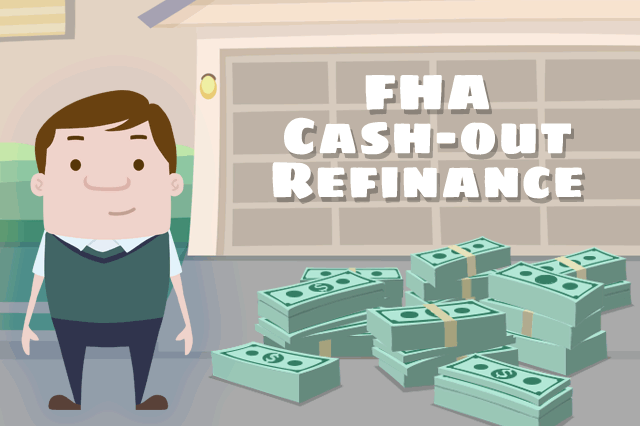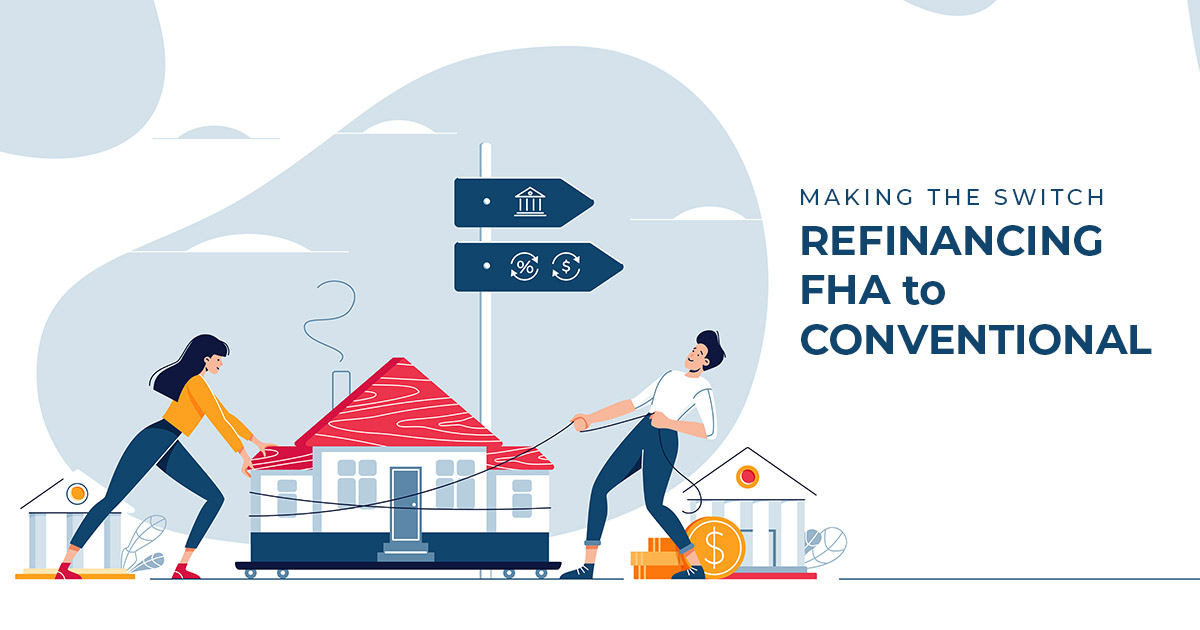Are you considering refinancing your FHA loan? If so, you’ve come to the right place! FHA loan refinancing offers a great opportunity to potentially lower your interest rate, consolidate debt, and even access the equity in your home. Whether you’re looking to reduce your monthly payments, shorten the term of your loan, or find a more manageable repayment plan, FHA loan refinancing has the potential to provide you with a range of benefits. So, let’s dive into the world of FHA loan refinancing and explore all the possibilities that await you.
Overview of FHA Loan Refinancing
FHA Loan Refinancing is a process that allows homeowners to replace their current FHA-insured mortgage with a new one, often with better terms and lower interest rates. This refinancing option is offered by the Federal Housing Administration (FHA) and is designed to help homeowners improve their financial situation and maintain homeownership.
How To Access Up To One Million Dollars Without Any Proof Of Income
What is FHA Loan Refinancing?
FHA Loan Refinancing refers to the process of replacing an existing FHA-insured mortgage with a new one, usually with more favorable terms and conditions. It allows homeowners to take advantage of lower interest rates, reduce their monthly payments, and even access cash from their home equity. This refinancing option is made available through approved lenders who are authorized to offer FHA loans.

How To Access Up To One Million Dollars Without Any Proof Of Income
Benefits of FHA Loan Refinancing
There are several benefits to consider when it comes to FHA Loan Refinancing.
Firstly, it can lower your interest rates, allowing you to save money over the life of your loan. With lower interest rates, you can potentially reduce your monthly mortgage payments, which can help improve your overall financial situation.
Additionally, FHA Loan Refinancing can also provide an opportunity for debt consolidation. By refinancing your existing FHA loan, you can take advantage of your home equity to pay off high-interest debts, such as credit cards or personal loans, consolidating them into one lower-interest loan. This can simplify your monthly payments and potentially save you money on interest charges.
Another benefit of FHA Loan Refinancing is that it allows you to access your home equity for various purposes. Whether you want to make home improvements, fund educational expenses, or cover unexpected medical bills, refinancing can provide you with the funds you need.
Furthermore, FHA Loan Refinancing offers flexible loan terms, allowing you to choose a repayment schedule that suits your financial situation. This can help you manage your mortgage payments more effectively and potentially pay off your loan sooner.
Lastly, refinancing an FHA loan can help borrowers avoid foreclosure. By lowering monthly payments or extending the loan term, homeowners can improve their affordability and reduce the risk of falling behind on their mortgage payments.

How To Access Up To One Million Dollars Without Any Proof Of Income
Eligibility for FHA Loan Refinancing
To be eligible for FHA Loan Refinancing, there are certain criteria that homeowners must meet:
- You must have an existing FHA-insured mortgage.
- You must be current on your mortgage payments and have a good payment history.
- Your existing mortgage must not be in default or delinquent.
- You must meet the lender’s credit score requirements, typically a minimum credit score of 580.
- Your debt-to-income ratio should be within the acceptable range set by the lender.
- Your property must meet the FHA’s minimum property requirements, including a satisfactory appraisal.
By meeting these eligibility requirements, homeowners can take advantage of the benefits offered by FHA Loan Refinancing.

How To Access Up To One Million Dollars Without Any Proof Of Income
How FHA Loan Refinancing Works
FHA Loan Refinancing works by replacing an existing FHA-insured mortgage with a new loan that offers more favorable terms and conditions. Here is an overview of the process:
- Determine your refinancing goals: Before starting the refinancing process, it’s important to identify your goals, such as reducing monthly payments, accessing cash, or changing the loan term.
- Check eligibility: Ensure that you meet the eligibility requirements for FHA Loan Refinancing, including having an existing FHA-insured mortgage and satisfying the lender’s credit and financial criteria.
- Gather required documents: Collect all the necessary documentation, such as income verification, bank statements, and tax returns, to support your refinancing application.
- Shop for lenders: Research and compare FHA-approved lenders to find the best refinancing options available. Consider factors such as interest rates, fees, and customer reviews.
- Compare loan offers: Once you have received loan offers from different lenders, compare them carefully. Pay attention to interest rates, loan terms, closing costs, and any other applicable fees.
- Submit your application: Choose the lender with the most favorable loan offer and submit your refinancing application. Provide all required documentation and complete any additional steps outlined by the lender.
- Underwriting and loan approval: The lender will review your application, scrutinize your financial information, and determine whether to approve your loan. This process may involve a credit check, assessment of your income and employment, and verification of your property’s value.
- Appraisal of property: An appraisal of your property will be conducted to determine its current value. This is essential for the lender to verify that the loan amount does not exceed the property’s value.
- Closing process: If your loan is approved, you will enter the closing process. This involves signing the necessary documents and paying any required fees or closing costs.
- Start repayment: Once you have closed on your new FHA loan, you will begin making monthly payments according to the terms and conditions outlined in the loan agreement.
How To Access Up To One Million Dollars Without Any Proof Of Income
Comparison to Conventional Refinancing
While both FHA Loan Refinancing and conventional refinancing aim to provide homeowners with better loan terms and conditions, there are some key differences between the two:
- Credit requirements: FHA loans generally have more lenient credit score requirements compared to conventional loans. This makes FHA Loan Refinancing a viable option for borrowers with less-than-ideal credit scores.
- Down payment: FHA Loan Refinancing allows borrowers to finance up to 97.75% of the appraised value of their homes, reducing the need for a large down payment. Conventional refinancing typically requires a higher down payment.
- Mortgage insurance: FHA loans require mortgage insurance premiums (MIP) to protect the lender in case of borrower default. Conventional loans may also require private mortgage insurance (PMI), but only if the borrower’s down payment is less than 20% of the property’s value.
- Loan limits: FHA loans have specific loan limits set by the FHA based on the county in which the property is located. Conventional loans may have higher loan limits, depending on factors such as the borrower’s creditworthiness and financial situation.
It’s important to consider these differences when deciding between FHA Loan Refinancing and conventional refinancing, as they can impact your eligibility, costs, and overall financial picture.
How To Access Up To One Million Dollars Without Any Proof Of Income
